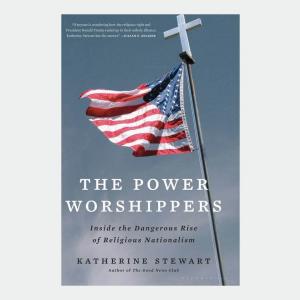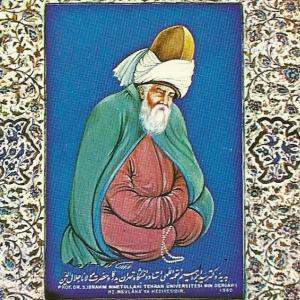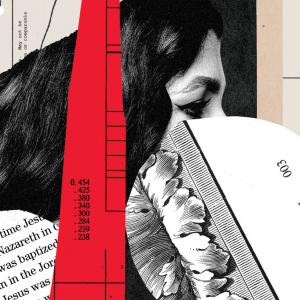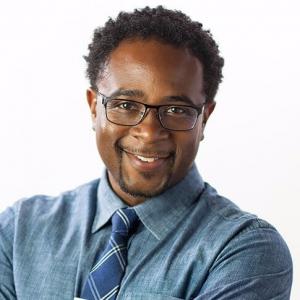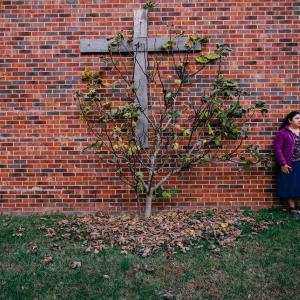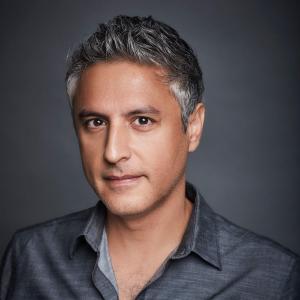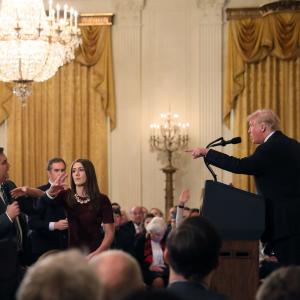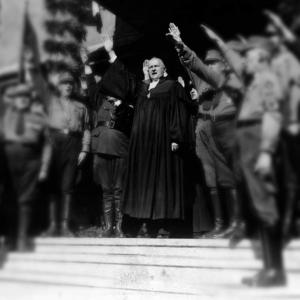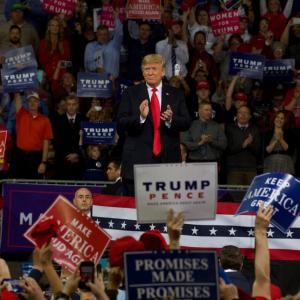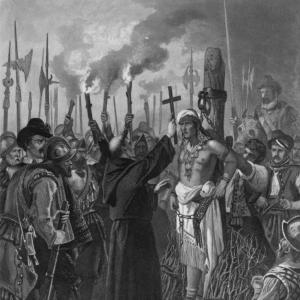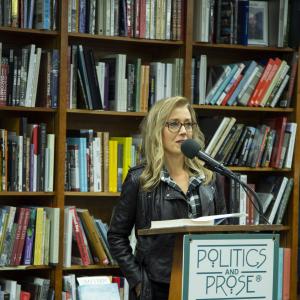
Daniel José Camacho is a writer and editor whose work has appeared in publications such as The Guardian, Sojourners, The Revealer, The Point, Religion News Service, America Magazine, and ABC Religion & Ethics. He is currently working on a book about Bartolomé de las Casas with Avid Reader Press, an imprint of Simon & Schuster.
Posts By This Author
Reexamining What Early Christians Thought About Slavery
Some books utterly disrupt you. I was doing research for an essay on St. Augustine and slavery when I first came across humanities scholar Jennifer Glancy’s Slavery in Early Christianity. Reading this book made me realize that everything I thought I knew about the history of Christianity and slavery was wrong.
The Racial Aesthetics of Burton's 'Weird Christians'
Burton and Dreher share similar aesthetic views about Christianity and the past.
On 'Sacrificing the Weak' and These Malthusian Times
Love him or hate him, Malthus is one of those figures who doesn’t go away.
Charity Can’t Replace Social Safety Nets
The federal government is big, and it intervenes. The question is, for whom?
The Long-Term Vision of the Christian Nationalist Movement
A Q&A with 'Power Worshippers' author Katherine Stewart.
Rumi, Caught Between the U.S. and Iran
Today, the United States and Iran are two countries on the precipice of war with ruling elites who quote Rumi.
The Saints That Haunt Us
Daniel José Older’s novel is a powerful meditation on love and betrayal in times of revolution.
Who Am I?
I'M HIGHLY SUSPICIOUS of the growing obsession with genetic ancestry tests. 23andMe. AncestryDNA. People can now scrape their inner cheek with a swab, mail it to a company for $99, and brag to you about a cultural or racial epiphany they’ve had based on being 4.7 percent of something. Who knows how this personal genetic information might be used. I suspect these companies respect people’s privacy as much as Facebook does. I’ve heard that governments and police departments are already using this information to track people.
And yet, I would be lying if I said I haven’t thought about purchasing a DNA kit for myself. Yes, I know that such tests provide limited and potentially misleading information. Yes, I understand that they fuel problematic framings of race that tie race to genetics when race is actually something socially and politically constructed. But I’m still curious!
I don’t know if I will ever take a test. I ask myself: Should I be contributing to this system? Could I convince Sojourners to pay for my test if I were to write an article about it, thus shifting some of the ethical burden away from me as an individual?
On the Brutal, Violent History of Racism in the U.S. Church
White evangelical support for Donald Trump has led some black evangelicals to a crisis of faith and ecclesial identification. In this moment, Jemar Tisby has risen as a voice that’s unafraid to challenge white evangelicals’ complicity with racism, forging another path for those feeling alienated. Tisby is currently completing his PhD in history at the University of Mississippi. He is the president of The Witness: A Black Christian Collective, previously known as the Reformed African American Network, and writes widely about racism, the American church, and social justice. In 2017, a New York Times article quoted him saying: “Racism is not a ‘blind spot’ within white evangelicalism. It is part of that tradition’s DNA.” Now, Tisby has published a book tracing that DNA by way of history.
The Limits of Sanctuary
In May 2017, Juana Luz Tobar Ortega took sanctuary at St. Barnabas Episcopal Church in Greensboro, N.C. Originally from Guatemala, she had received a deportation sentence that would have separated her from her husband, four children, and two grandchildren, after living and working in the United States for over 20 years. Juana’s story, which is one among many harrowing stories of families harmed by aggressive immigration policies under the Trump administration, is now the subject of a documentary film.
Shattering Religious Stereotypes Behind the Camera
So far, Aslan’s cable shows — including his Muslim-American family sitcom that was dropped by ABC — have not panned out. But his ambitions to reach a broader audience remain as large as ever. And unlike the somewhat braggadocios and didactic style of commentary that he’s become known for in front of television cameras, he’s eager to change minds while occupying a different place: behind the camera.
On Hell and Knicks Eschatology
In the essay “How The Idea Of Hell Has Shaped The Way We Think,” published in the Jan. 21 edition of the New Yorker, writer Vinson Cunningham examines The Penguin Book of Hell and launches into a stunning and far-ranging reflection on how the doctrine of hell relates to our concerns about the here and now. As a staff writer for the New Yorker since 2016, Cunningham has written on a variety of subjects including Pope Francis, theater, and the NBA. Prior to this, he was a columnist at McSweeney’s and served as a staff assistant at the Obama White House.
On Asymmetrical Polarization
Earlier this week, journalist Yamiche Alcindor asked Donald Trump about whether his rhetoric — and that of his party — emboldened white nationalists. Trump responded, "That's such a racist question." This happened on the same day in which a prominent white nationalist leader posted pictures of himself parading on the White House lawn.
Trump’s response follows a trend. When a reporter asked about his rhetoric contributing to violence, he said: “You're creating violence by your question.” When asked about the offensive ad that he ran in the lead up to the midterms, Trump replied, “Your questions are offensive.”
When White Nationalist Christians Redefined Their Neighbors
Lately, I have been asking myself the following question: How can sincere Christians embrace white nationalism? My question stems less from surprise and more from a desire to understand the mechanics. In church circles and in seminary, I heard about Barth, Bonhoeffer, and those who resisted. But I rarely heard about the majority of white Christians who supported a demagogue whose rhetoric had violent consequences.
A New Study on Evangelical Voters Ignores Racism
A new study published in Christianity Today claims to debunk dominant narratives around the 81 percent of white evangelicals who voted for Donald Trump in 2016. New York Times columnist David Brooks shared it and concluded: “Many Evangelicals voted for Trump, reluctantly, because of economics and health care more than abortion and social issues.” If this sounds too good to be true, it’s because it is.
Can We Afford Economic Justice in the United States?
“How can we afford it?” That’s the perennial question that confronts anyone who dares to propose progressive policy changes. A recent example is CNN’s Jake Tapper grilling congressional candidate Alexandria Ocasio-Cortez over whether tax money could fund items on her platform such as Medicare for all, a federal job guarantee, and cancelation of student loan debt. For those who are religious and politically progressive, this question is particularly challenging. While many are good at articulating the moral imperative of providing health care to all or protecting the environment, they can stumble on the issue of economic feasibility. So, when I was told about an economics conference in New York City that might connect to this topic, I was intrigued.
Unlearning the Doctrine of Discovery
Modern, Euro-American Christianity is deeply implicated in the colonial legacies which have crushed indigenous peoples. Reckoning with this is not easy. The doctrine of discovery provides an example. The doctrine of discovery was a Christian invention which justified dispossessing indigenous peoples of their land, parceling it out among emerging nation-states, and turning it into private property for settlers. In this framework, indigenous peoples are left with either extermination or assimilation.
Survey: White Christians More Likely to Consider Supporting Candidates Accused of Sexual Harassment
A new study by the Public Religion Research Institute reveals deep divides over support for political candidates accused of sexual harassment. The most striking divide may be among major Christian groups.
The survey asked respondents about the likelihood of them voting for someone accused of sexual harassment by multiple people. PRRI provided Sojourners with a breakdown of responses to this question by religious affiliation.
Sarah Smarsh Challenges Narratives About America's Heartland
Heartland: A Memoir of Working Hard and Being Broke in the Riches Country on Earth is a gripping account traversing family, poverty, geography, history, and public policy. It’s already been longlisted for a National Book Award and is a Kirkus Prize finalist. Smarsh captures the experience of poverty in the deftest of prose: “I knew how to compare prices on tags before I knew how to read words.”
A New Bible App For Those Feeling Left Out Of Christianity
Entering digital spaces that are dominated by conservative Christian resources, Our Bible App is attempting to carve out a unique space. It is explicitly pro-LGBT, pro-women and pro-interfaith inclusivity in its stated mission. “I created this app because I'm tired of feeling left out of Christianity because of my complex identities,” Crystal Cheatham, the app’s founder and CEO, told Sojourners. “I wanted worship materials that talked about an inclusive kind of faith and embraced that same kind of community.”




